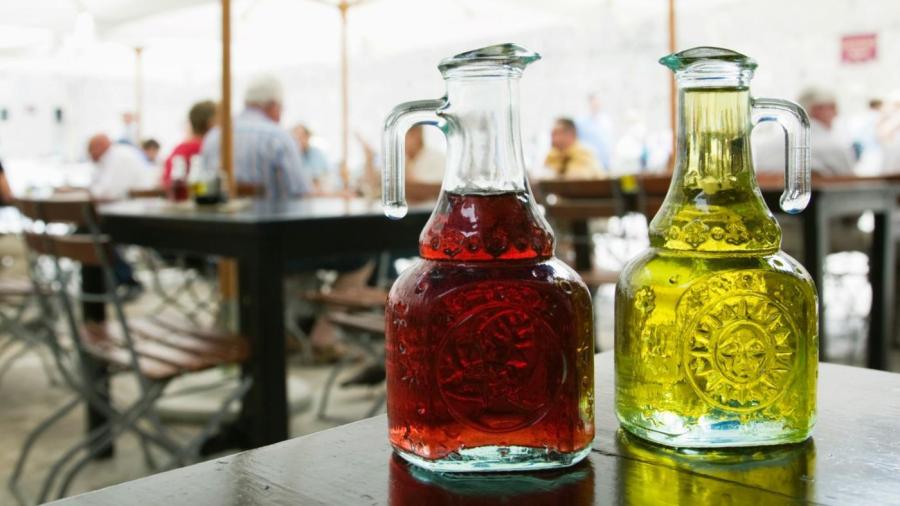What Happens When You Mix Oil and Vinegar?

The mixing of oil and vinegar produces a temporary mixture that will eventually separate into two layers. This occurs because these two liquids are immiscible, meaning it is impossible for these two substances to be mixed into a permanent emulsion.
An emulsion is a suspension of two liquids that normally do not stay mixed, like oil and vinegar. Normally, if one pours oil into vinegar, the oil will float on top of the vinegar. Oil is less dense than vinegar. However, the main reason why this happens is because oil is a non-polar substance, and vinegar is a polar one. Substances with dissimilar molecular structures do not interact easily.
In order to keep this separation of liquids from occurring, it is necessary to whisk the oil and vinegar together, forming a temporary emulsion. Still, the temporary emulsion will eventually separate into two layers of the original liquids. For a permanent emulsion, an emulsifying agent is necessary to molecularly hold these immiscible liquids together.
Although combinations of oil and vinegar or water and oil are classic examples of immiscible substances, there are many others, including water and hexane and water and chloroform. Alternatively, some examples of miscible substances can be either water and grain alcohol or acetic acid and water.





